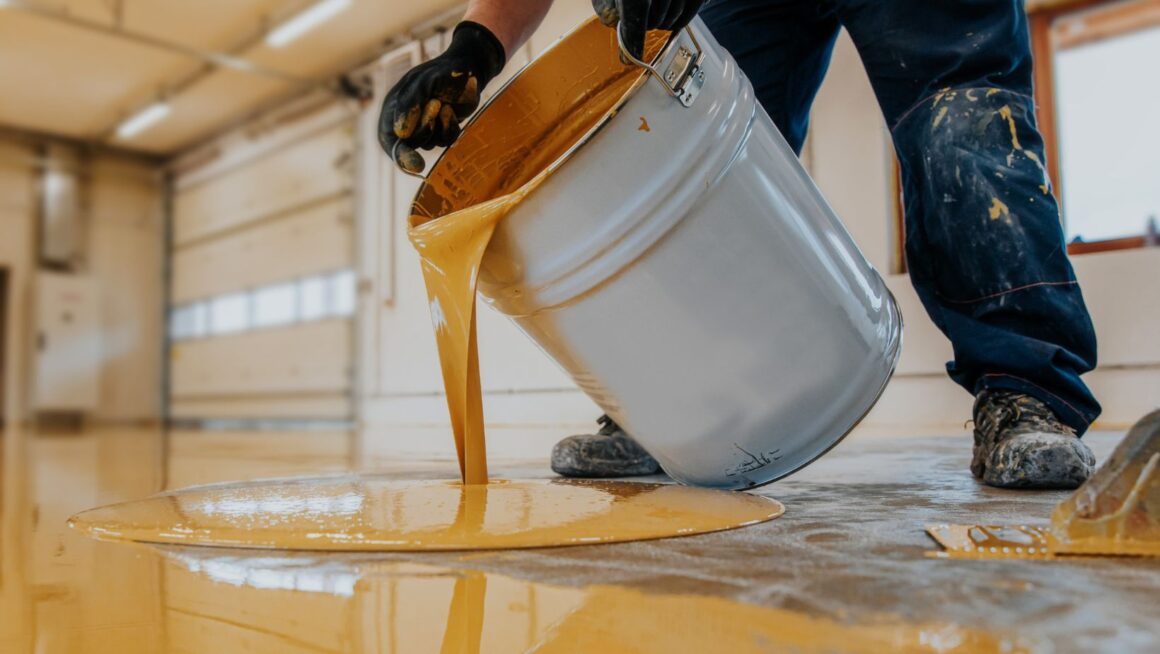Flooring is one of the most significant aspects of any building’s aesthetics and functionality. Over time, the need to protect and preserve flooring has led to the development of various advanced floor coatings. These coatings not only enhance the appearance of floors but also extend their lifespan by offering superior protection against wear, tear, and environmental elements. This detailed guide explores the latest innovations in floor coatings, focusing on how these solutions can safeguard your flooring investments.
Table of Contents
ToggleUnderstanding Floor Coatings
Floor coatings are specialized layers applied to different types of flooring surfaces to protect them from damage, corrosion, and wear. They can also enhance a floor’s visual appeal and make maintenance easier. These coatings are crucial for areas that handle heavy traffic or are exposed to harsh conditions regularly.
Role of Advanced Floor Coatings
The primary role of advanced floor coatings is to provide a durable barrier that resists physical and chemical damage. They help maintain the structural integrity and aesthetics of flooring systems, preventing costly repairs and replacements, and minimizing maintenance requirements.
Introduction to Polyurethane Floor Paints
Among the various options available, polyurethane floor paints stand out for their exceptional resilience and versatility. These paints form a robust, protective film over the flooring that can withstand significant abuse, making them ideal for both commercial and residential applications. The protective layer offered by polyurethane enhances the floor’s resistance to scratches, spills, and stains while also providing a customizable aesthetic finish.
Types of Advanced Floor Coatings
The choice of floor coatings varies depending on the usage requirements, traffic levels, and aesthetic preferences. Here’s a look at some of the most effective and innovative floor coatings available today:
Epoxy Coatings
Epoxy coatings are renowned for their strength and durability. Comprising a system of resins and hardeners, they create a tough, seamless surface that is resistant to chemicals, stains, and abrasion. Epoxy is particularly popular in industrial settings, garages, and service areas where the floor needs to withstand heavy loads and constant wear.
Polyurethane Coatings
Polyurethane coatings are slightly more flexible than epoxy, making them ideal for spaces that require both durability and a bit of give under stress. This characteristic makes polyurethane coatings excellent for areas where thermal shock resistance is needed, such as in kitchens or processing plants where the floor might be subject to hot spills.
Acrylic Coatings
Acrylic coatings are another popular choice, known for their quick curing times and UV resistance. This makes them suitable for both indoor and outdoor applications. They are less durable than epoxy and polyurethane but provide a cost-effective solution for areas that require frequent reapplication, such as sun-exposed patios.
Ceramic-Based Coatings
New advancements in technology have led to the development of ceramic-based coatings, which offer exceptional hardness and heat resistance.

These coatings are often used in high-traffic commercial environments or in spaces that require an additional level of durability.
Benefits of Advanced Floor Coatings
Using advanced floor coatings comes with a multitude of benefits that extend beyond mere protection:
Enhanced Durability
Advanced coatings significantly extend the life of flooring by protecting against factors that typically lead to wear and degradation, such as foot traffic, mechanical loads, and chemical spills.
Improved Aesthetics
Modern floor coatings are available in a range of colors and finishes, allowing for complete customization according to the décor and style of the space. High-gloss options can brighten a room significantly, while satin and matte finishes can offer a more subdued, sophisticated look.
Increased Safety
By incorporating additives like anti-slip grit, floor coatings can improve the safety of areas prone to wet or oily conditions. This is particularly important in commercial kitchens, workshops, and other high-risk environments.
Cost Efficiency
Protecting floors with durable coatings can reduce the need for frequent repairs or replacements, thereby providing significant long-term savings. The ease of maintenance associated with coated floors further adds to the cost benefits.
Choosing the Right Floor Coating
Selecting the right floor coating involves considering several factors to ensure it meets the needs of the environment:
Assess the Environment
Consider the type of traffic and exposure to chemicals the floor will endure.

Areas with heavy machinery, for example, will require a different type of protection compared to standard commercial spaces.
Consider the Substrate
Different coatings adhere better to certain materials. Ensure the coating you choose is compatible with your flooring material, whether it’s concrete, wood, or another substrate.
Aesthetic Requirements
Determine whether the coating needs to contribute to the space’s visual appeal. For aesthetic flexibility, look for products that offer a range of colors and finishes.
Maximizing Floor Potential with Advanced Coatings
The right floor coating is more than just a protective layer; it’s a long-term investment in the beauty, functionality, and safety of a space. By choosing a suitable advanced coating like polyurethane, epoxy, or ceramic-based options, you can not only extend the life of your floors but also enhance their appearance and utility. Whether for a bustling factory floor or a busy kitchen, advanced floor coatings offer a reliable solution for preserving and enhancing flooring surfaces across all types of environments.



